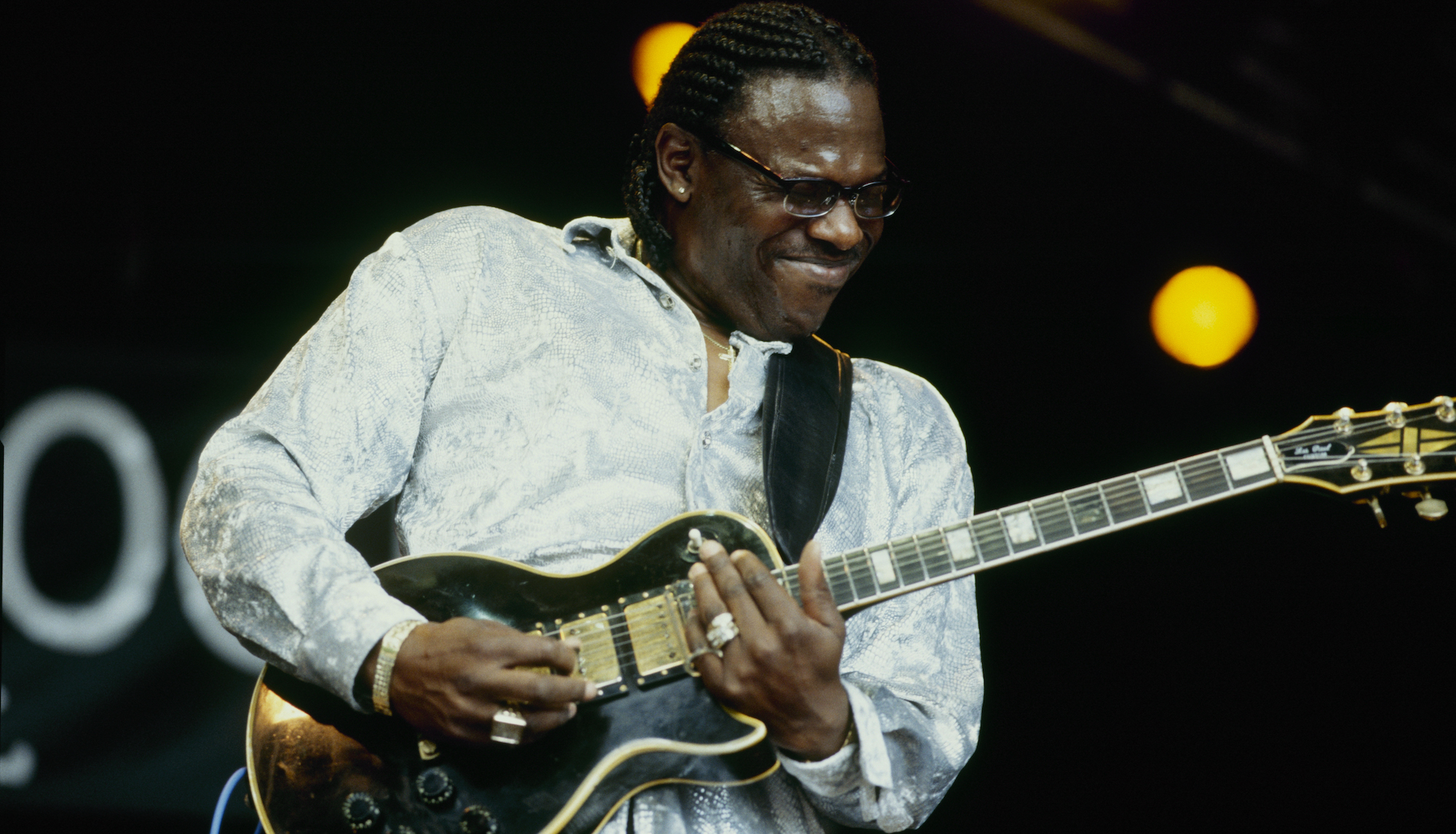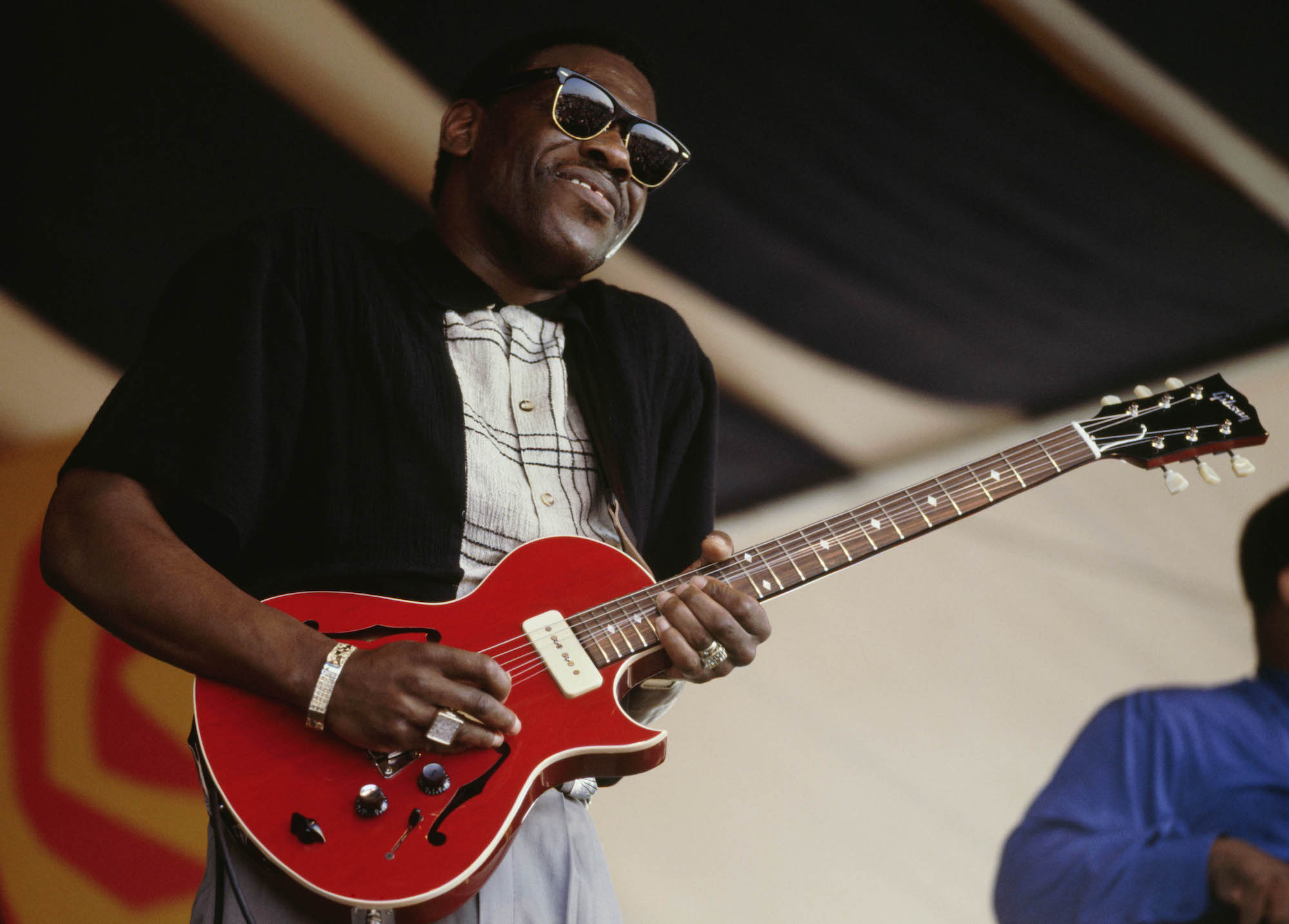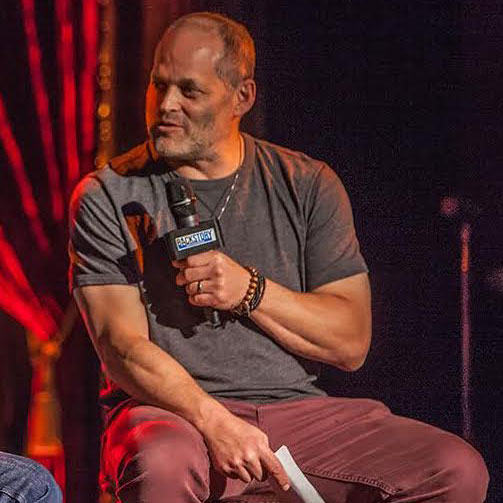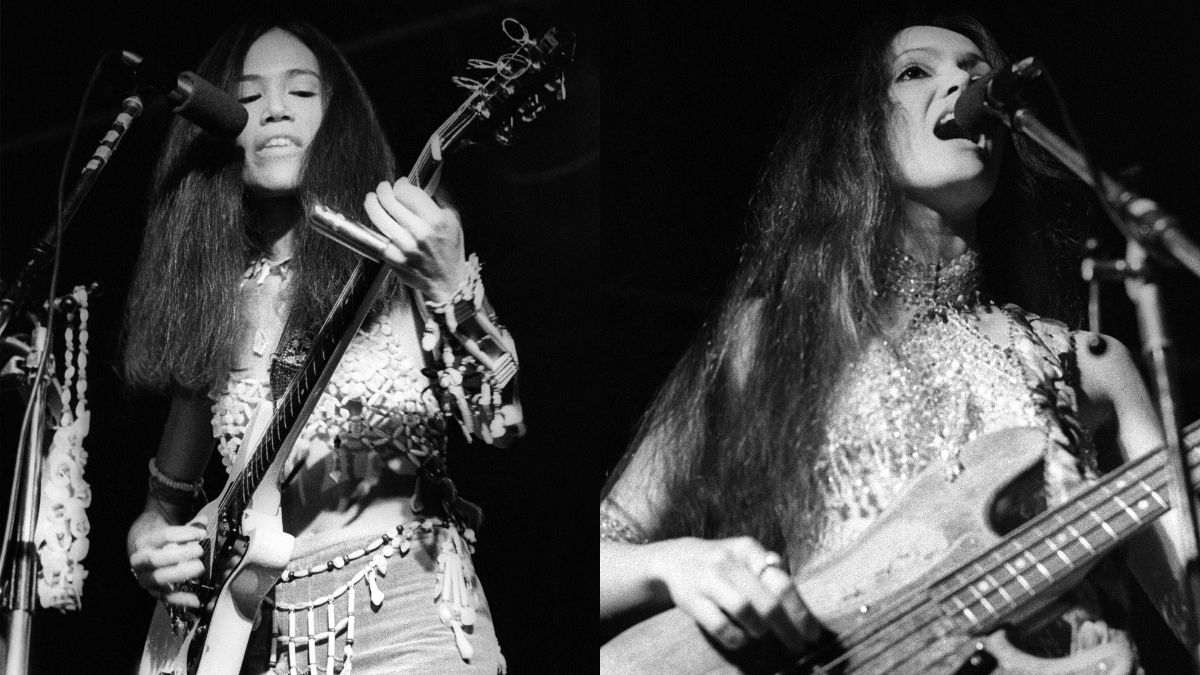Buddy Guy said he would take the blues “into the future,” and he was a guitar brother-in-arms of Mike Bloomfield. An unsung blues great talks influences, the Paul Butterfield Blues Band, and crossing over into jazz

All the latest guitar news, interviews, lessons, reviews, deals and more, direct to your inbox!
You are now subscribed
Your newsletter sign-up was successful
Bluesman Joe Louis Walker has never been one content to play within the perceived limitations of his chosen musical genre.
From his first album, 1986's Cold is the Night, to his most recent, JLW, Walker has fearlessly expanded the parameters of the blues by writing ambitious, inventive songs which reflect a wide range of influences, including horn-driven, West Coast blues, harder-edged Delta and Chicago styles, gritty soul, aggressive rock, and uplifting gospel. He's also shown a deft hand at playing slide guitar, both electric and acoustic.
“I see doing all of these things as my calling,” Walker says. “I just try to put it together in a way that makes sense and always sounds like me. I don't want to be a jack of all trades and a master of none. I'm very mindful of that.”
Walker has little cause to worry. This blues alchemist has forged a distinct signature sound that is characterized by his pungent, sharp-toned, vibrato-laden guitar playing and emotive singing, both of which display enough rabid intensity to grab even the most casual listener by the throat.
In the eight years since his debut, Walker has released seven albums: the first five on Hightone Records and the last two – Blues Survivor and JLW – on Gitanes/Polygram.
Recently, his vision has expanded to include jazz elements.
He co-wrote and played on The Road You Choose on Branford Marsalis' I Heard You Twice The First Time album. Marsalis returned the favor by appearing on JLW, and the rounded tone and angular phrasing familiar to jazz have popped up in a few places on his recent albums.
All the latest guitar news, interviews, lessons, reviews, deals and more, direct to your inbox!
“I'm pushing it a little bit when I try to play jazz,” Walker says with a laugh. “But I have a real open mind, musically, and I like to try everything.
“I'm just one of those people who are all over the place and one reason is that I get bored easily, so I'm always trying to keep my interest in what I'm doing. I figure that if I'm not interested, why should anyone else be?”
No one's likely to lose interest anytime soon. Since releasing Cold Is The Night in 1986 as a virtual unknown, the 44-year-old Walker has established himself as blues' finest contemporary guitarist.
Of course, like most “overnight sensations,” Walker's stunning entree was a long time in the making.
As a youth, the San Francisco Bay Area native immersed himself in his parents' extensive blues record collection. By 16, he was fronting a blues-rock band that played San Francisco's burgeoning club scene, opening up for rock bands like The Jefferson Airplane, as well as bluesmen like Freddie King, Howlin' Wolf, Fred McDowell, Earl Hooker, and Magic Sam.
“Meeting those guys changed me,” says Walker. “I started doing less and less rock and becoming more and more absorbed by the blues. It was an exciting time because so many people were starting to get into the blues, discovering it through bands like the Yardbirds and the Paul Butterfield Blues Band, and I was meeting a lot of the originators.”

Butterfield guitarist Mike Bloomfield soon became a major guitar hero to the world and a close friend of Walker's – they were actually roommates for a time. But before his career could blossom, Walker fell into a drug-fueled downward spiral that he characterizes simply as a “whole lot of wasted days and nights,” which led him to leave secular music behind for a decade to play gospel with the Bay Area group the Spiritual Corinthians.
“Playing with the Corinthians changed not only my life, but also my attitude towards music,” Walker says. “It made me more focused and gave me real goals for the first time.”
Walker has presumably met most of his goals by now, but he says that his main guitar influences and heroes remain the same as when he started out.
“I still marvel every time I hear B.B. King or Buddy Guy on a good night. And for slide, I still look to two guys I was fortunate enough to meet in those early San Francisco days: Mississippi Fred McDowell and Earl Hooker.
“Both of them played slide as an extension of the human voice, and that's a style I particularly like. Because I always want to say something with my guitar.”
- This interview with Joe Louis Walker first appeared in the December 1994 issue of Guitar World. Subscribe and save.
Alan Paul is the author of four books, including Brothers and Sisters: The Allman Brothers Band and the Inside Story of the Album That Defined '70s as well as Texas Flood: The Inside Story of Stevie Ray Vaughan and One Way Out: The Inside Story of the Allman Brothers Band – both of which were both New York Times bestsellers – and Big in China: My Unlikely Adventures Raising a Family, Playing the Blues and Becoming a Star in Beijing, a memoir about raising a family in Beijing and forming a Chinese blues band that toured the nation. He’s been associated with Guitar World for 30 years, serving as managing editor from 1991 to 1996. He plays in two bands: Big in China and Friends of the Brothers (with Guitar World’s Andy Aledort).
You must confirm your public display name before commenting
Please logout and then login again, you will then be prompted to enter your display name.


